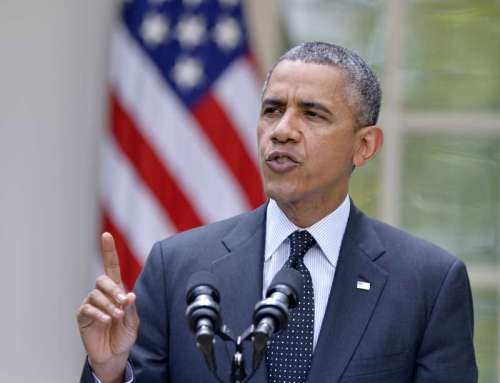 US President Barack Obama signed the reform bill of the National Security Agency (NSA) on surveillance, hours after the Senate’s approval, leading to the enactment of the measure, Efe news agency reported on .
US President Barack Obama signed the reform bill of the National Security Agency (NSA) on surveillance, hours after the Senate’s approval, leading to the enactment of the measure, Efe news agency reported on .
In a statement, the White House reported the instructions of Obama, who rushed to enact the USA Freedom Act, amending certain provisions of the Patriot Act, adopted after the 9/’11 (September 11, 2001) attacks, which included massive collection of telephone data from citizens.
The US will continue its surveillance practices, but it will not be the government who will directly collect the information from the citizens, but telephone companies which will gather the data.
This information will be facilitated specifically, should the administration require it for security reasons.
With 67 votes in favour and 32 against, the Senate on Tuesday put an end to two weeks of disagreements between two factions of the Republican opposition, despite the fact that the original text received overwhelming bipartisan approval in the House of Representatives 14 days ago.
The expiry of the law, the practices of which were revealed by whistleblower Edward Snowden two years ago, has returned to reopen the debate on the balance between national security and freedom and the privacy of people.
According to most Congressmen and even Obama, the reform has managed to achieve the necessary balance.
The US Senate has approved the reform of the National Security Agency surveillance bill without attaching any amendments, ensuring that only President Barack Obama’s signature is now required to reinstate the programme.
Some of the parts of the Patriot Act expired after senators were not able to agree on approving the reform bill, which was opposed mainly by Republican Senate Majority Leader Mitch McConnell and also by Sen. Rand Paul, another Republican, for very different reasons.
Thus, the US will continue with its practice of monitoring phone calls but it will not be the government that will collect massive amounts of information on citizens’ phone records, but rather this task will pass into the hands of the telephone companies, which will specifically provide phone records to the authorities if a warrant is issued for security reasons.
In a 67-32 vote, senators put an end to two weeks of disagreement between two Republican factions, despite the fact that the original text of the bill was approved quickly and in a bipartisan manner by House in mid-May.
Republican House Speaker John Boehner and Obama both agreed to support the reform of the Patriot Act.
But the obstacle to the bill arose within the heart of the Republican caucus.
While Paul is a firm critic of massive espionage carried out by the United States in keeping with the law, McConnell wanted to keep the language as it was, including the controversial ability of the government to compile huge amounts of data on telephone users.
Given the failure of senators to agree on the reform before the law was due to lapse, McConnell ultimately agreed to accept it with several amendments to ensure that the monitoring programs function in accord with his wishes.
The presentation of the modifications means that there will be an even greater delay before the law is reactivated, given that the text must now be sent back to the White House, but all the amendments McConnell had wanted were rejected on Tuesday by the senators.